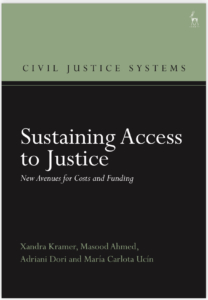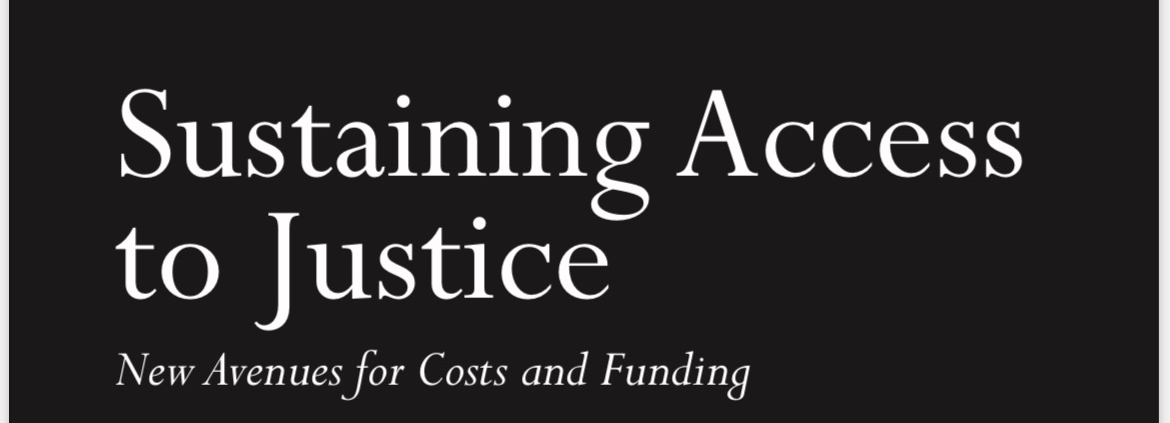Views
Enforceability Denied! When the SICC’s Authority Stopped at India’s Gate
Written by Tarasha Gupta, BALLB (Hons), Jindal Global Law School, and Saloni Khanderia, Professor, Jindal Global Law School (India)
The Singapore International Commercial Court (“SICC”) has become a preferred hub for hearing litigation and arbitration of international commercial disputes. Accordingly, many decisions from the SICC require recognition and enforcement in India.
In this light, a recent judgment from the Delhi High Court (“HC”) is a significant development providing relief to those wishing to enforce the SICC’s judgments in India. In Discovery Drilling Pte Ltd v. Parmod Kumar & Anr,[1] the HC has held that the SICC is a superior court under Section 44A of the Code of Civil Procedure, 1908 (“CPC”). As a result, its judgments can be directly executed in India. That said, the HC ultimately held the judgment in question to be unenforceable, as it failed to meet the tests in Section 13 of the CPC.
This article breaks down the arguments and legal context behind the HC’s judgment. It also highlights how the case demonstrates flaws in India’s regime, which create difficulties not just for creditors trying to enforce foreign judgments in India, but also in enforcing India’s judgments abroad. Read more
Sovereign Immunity and the Enforcement of Investor–State Arbitration Awards: Lessons from Devas V. India in Australia, The United Kingdom and India
Written by Samhith Malladi, Dual-qualified lawyer (India and England & Wales), and Senior Associate, Shardul Amarchand Mangaldas [Bombay office]; and Niyati Gandhi, Partner, Dispute Resolution, Shardul Amarchand Mangaldas [Bombay office]
The Recalibration of Enforcement Doctrine
The global campaign to enforce arbitral awards against the Republic of India arising from its long-running dispute with Devas Multimedia has witnessed a significant doctrinal shift in the treatment of sovereign immunity within the enforcement of investor–state dispute settlement (ISDS) awards.
To recall, the dispute arises from a contract entered in 2005 between Devas Multimedia Private Limited (Devas) and the Indian state-owned Antrix Corporation (Antrix), which was the commercial arm of the Indian Space Research Organisation. Antrix had agreed to lease S-band spectrum to Devas to broadcast its multimedia services in India. Antrix terminated this contract in 2011 citing national security concerns. In a nutshell, the dispute spawned three concluded arbitrations – a commercial ICC arbitration between Devas and Antrix and two investor-state arbitrations between Devas’ shareholders and India under the India-Mauritius Bilateral Investment Treaty (BIT) 1998 and the India-Germany BIT 1995. In 2022, Devas’ Mauritian shareholders commenced another investor-state arbitration against India under the India-Mauritius BIT in relation to India’s efforts to thwart the award against Antrix in the ICC arbitration, which currently remains pending before the Permanent Court of Arbitration. An overview of the various proceedings arising from this dispute has been previously discussed on this blog here. Read more
Conflict of Law Rules in the Early 20th Century Ethiopia: A Brief Legal History
Guest post by Bebizuh Mulugeta Menkir, former Lecturer of Laws in University of Gondar, currently working as a Lawyer and Senior National Consultant for a legal reform project. E-mail: babimulugeta@gmail.com
The Ethiopian legal system is characterized by the absence of codified rules on conflict of laws. Though it cannot be considered as the exact period in which conflict of laws have emerged in Ethiopia, some elements of such rules can be found even in the early 1900s, which is long before the modern codes were developed in 1950s and 1960s.
A book written by Mersehazen Woledekirkos titled “Ye Hayagenawe Keflezemen Mebacha:Ye Zemen Tarik Tezetaye Kayehute ena Kesemahute 1896–1922”[1] is a record of historical events that happened in 20th century Ethiopia. One of the records is the “Trade Agreement (1908)” that was signed between Ethiopia and France. This agreement, among others, regulates the adjudication of disputes between Ethiopian and French nationals/dependents. This short piece aims to briefly discuss the salient conflict of laws rules that are incorporated in this trade agreement. Read more
News
Asser Institute Conference: Adapting Private International Law in an Era of Uncertainty
Announcement prepared by Eduardo Silva de Freitas (Asser Institute and Erasmus University Rotterdam)
The T.M.C. Asser Institute is organising the conference “Adapting Private International Law in an Era of Uncertainty” as part of its 60 Years Series. The event will take place in The Hague (The Netherlands) on Friday, 24 October 2025, and will gather academics, practitioners, and early career researchers who will address current topics in Private International Law, including developments in the digital age and the protection of weaker parties.
The programme is available by clicking here: asser-institute-60-years-series_final.pdf
To register for the conference, please visit: T.M.C. Asser Instituut Registration Form
For more information you can contact the organisers at: E.Silva.de.Freitas@asser.nl or V.Lazic@asser.nl
New book and webinar Sustaining Access to Justice – 5 September
 In June the volume “Sustaining Access to Justice: New Avenues for Costs and Funding” was published in the Civil Justice Systems series of Hart Publishing (2025). The book is edited by Xandra Kramer, Masood Ahmed, Adriani Dori and Maria Carlota Ucín. This edited volume results from a conference held at Erasmus University Rotterdam, as part of the Vici project on Affordable Access to Justice funded by the Dutch Research Council (NWO). It contains contributions on access to justice themes, in particular costs and funding of litigation, by key experts across Europe, Latin America and Asia. More information, including the table of contents is available at the Bloomsbury website here.
In June the volume “Sustaining Access to Justice: New Avenues for Costs and Funding” was published in the Civil Justice Systems series of Hart Publishing (2025). The book is edited by Xandra Kramer, Masood Ahmed, Adriani Dori and Maria Carlota Ucín. This edited volume results from a conference held at Erasmus University Rotterdam, as part of the Vici project on Affordable Access to Justice funded by the Dutch Research Council (NWO). It contains contributions on access to justice themes, in particular costs and funding of litigation, by key experts across Europe, Latin America and Asia. More information, including the table of contents is available at the Bloomsbury website here.
The book explores the dynamic landscape of legal costs and financing from three perspectives: regulatory frameworks in public and private funding; new trends and challenges in contemporary legal financing; and the transformative potential of alternative dispute resolution (ADR) and online dispute resolution (ODR) procedures to streamline civil justice processes and expand access to justice.
By addressing the intersectionality of legal, economic, political, market and social dynamics, the book aims to provide an encompassing understanding of the inherent complexity of costs and funding of litigation, and their implications for access to justice.
A seminar on the ocassion of launching the book will take place on 5 September 2025, from 10-12.15 CET.
Program
10.00 Introduction Xandra Kramer, Masood Ahmed, Carlota Ucin, Adriani Dori
10.15 Jacek Garstka (European Commission) – EC perspective on the access to justice and the role of litigation funding
10.25 Maria Jose Azar-Baud – Trends in Funding of Collective Litigation
10.35 Alexandre Biard – Enforcing Consumer Rights: Costs and Funding
10.50 Discussion
11.10 Eduardo Silva de Freitas – Justice for a Price: Funders, Fees and the RAD
11.20 Marcel Wegmüller – ESG and Litigation Funding: A Practitioner’s View
11.35 Adrian Cordina – Regulating Litigation Funding: A Law and Economics View
11.45 Stefaan Voet/Masood Ahmed – Beyond Litigation: Cost-Effective Strategies for ADR and ODR
12.00 Discussion and Conclusion
More information and (free) registration here.
Webinar: Beyond State Borders, Beyond the Situs Rule? Private International Law Issues of Resource Extraction in Antarctica, the Deep Seabed, and Outer Space
The Aberdeen Centre for Private International Law & Transnational Governance (CPILTG) will be hosting a webinar by Professor Caroline Rapatz (University of Kiel, Germany) on 20 August 2025, 11am – 12pm noon.
More information is available here.




